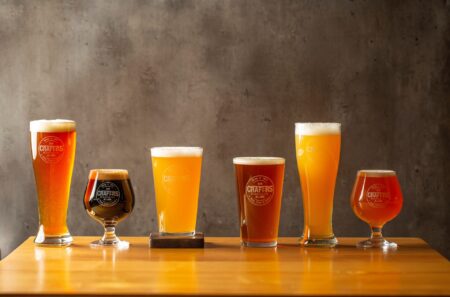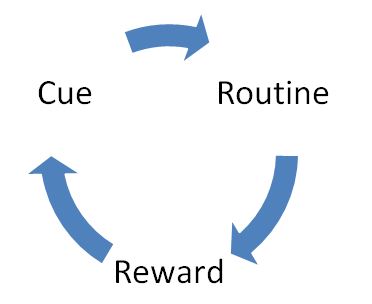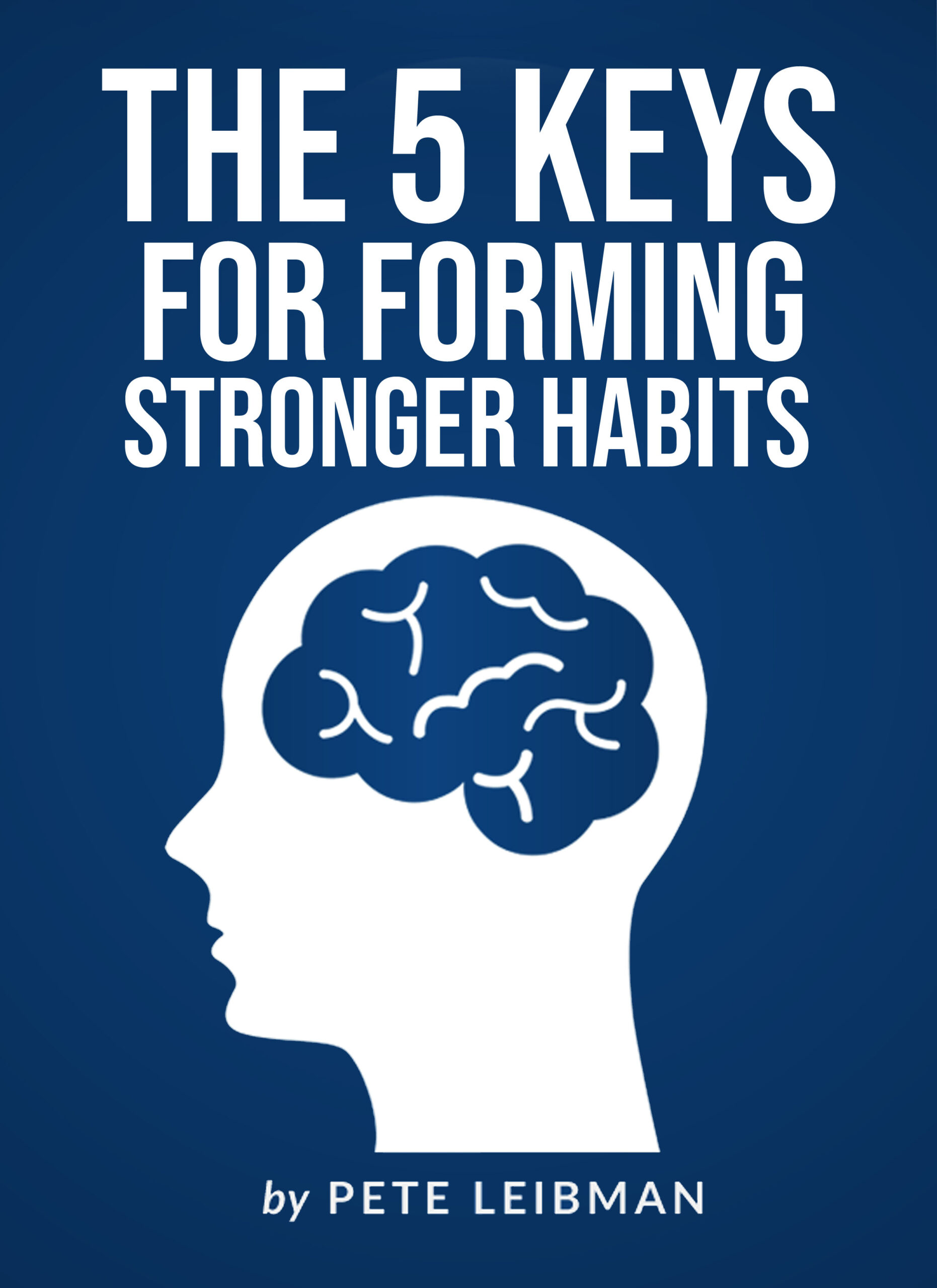
Would you like to drink less alcohol?
Maybe you have developed a habit of drinking too often or too much, and you want to cut back. Or, maybe you want to eliminate alcohol from your life altogether. In this article, you will learn how to drink less alcohol. Follow these five steps, and you are guaranteed to drink less.
Note: If you think you might have an alcohol addiction, contact the Substance Abuse and Mental Health Services Administration (SAMHSA) at 800-662-HELP. They are available 24-7-365. Calls are free and confidential.
Why Should You Drink Less Alcohol?
Excessive alcohol consumption can lead to all sorts of problems. Here are some of the many short-term and long-term consequences of drinking too much or too often:
- While drinking: Your self-control, judgment, and decision-making ability suffers.
- During sleep: Your sleep quality declines. (Many people incorrectly think alcohol helps them sleep. In reality, even if drinking helps you fall asleep, it reduces the quality of your sleep that night and your performance the next day. 1)
- The next day: You can experience headaches, nausea, anxiety, lack of energy, and difficulty concentrating the next day.
- Over the long-term: You can damage your brain, heart, and liver, and be more likely to develop cancer. 2
One of the best ways to feel better and perform better (in the short-term and long-term) is to drink less alcohol.
5 Steps to Cut Back on Drinking
If you want to drink less alcohol, follow these five steps:
Step 1: Be clear on your “why.”
There are many benefits to drinking less alcohol. Be clear on why it’s important to you. The stronger and more personal your “why,” the easier it will be to make any change last.
Let me use myself as a personal example. In college and during the early part of my twenties, I drank a lot of alcohol with friends on Friday nights and Saturday nights. I was never out of control, but it was a bad habit.
In my late twenties, I decided it was time for a change. I didn’t like how I felt or behaved after having more than a couple of drinks. In addition, drinking was a domino habit for me that led to other bad habits. That included eating junk food, getting poor sleep, and wasting time on weekends recovering from hangovers. All of these reasons factored into my decision to stop drinking so much alcohol.
Your reasons for wanting to cut back could be different. Either way, you need to be clear on how your life will improve by drinking less. Where there is a will why, there is a way. That brings us to step #2.
Step 2: Identify your cues and rewards for drinking alcohol.
Drinking does not happen randomly. Like any routine, drinking is triggered by certain cues, and drinking is done for certain short-term rewards. In his book titled The Power of Habit, author Charles Duhigg explains a three-step process (cue, routine, reward) that he refers to as “The Habit Loop.” 3

Here are some questions to help you identify the cues that trigger your drinking, along with the short-term rewards that drinking provides for you:
- Where are you when you drink alcohol? Your physical environment has a big impact on your behavior. For example, maybe you drink a lot when you are at bars. Or, maybe you drink a lot when you are at home.
- Who are you with (if anyone) when you drink alcohol? Your social environment also has a big impact on your behavior. For example, maybe you drink a lot when you are around certain people. Or, maybe it’s when you are alone that you drink more.
- How do you feel right before you drink alcohol? The way that you feel (mentally or emotionally) can also trigger your drinking. For example, maybe you drink when you are bored, sad, or stressed-out.
- What typically happens right before you drink alcohol? Other behaviors can also trigger drinking. For example, maybe you start drinking alcohol immediately after you leave work. Or, maybe you reach for a drink right after you have an argument with your spouse.
- What days and times do you usually drink alcohol? There are probably certain days and times when you drink. For example, maybe you do most of your drinking on weekday evenings. Or, maybe you do most of your drinking on Friday and Saturday nights.
- What short-term reward(s) does drinking provide for you? Even though drinking alcohol has many negative consequences, you do it because it provides you with certain short-term benefits. For example, maybe you drink as a way to loosen up and be more outgoing in social settings. Or, maybe you drink as a way to escape from frequent stress or sadness in your life.
There are specific cues that trigger you to drink, and there are specific reasons why you drink. Identify the cues and rewards associated with your alcohol intake. Then, you can be strategic about how to drink less. That brings us to step #3.
Step 3: Remove or reduce your cues for drinking alcohol.
If you want to drink less alcohol, don’t just try to have more willpower. A much stronger approach is to remove or reduce the cues that trigger your drinking in the first place.
Ask yourself how you can remove or reduce the cues that you identified in step 2. For example, if you typically drink alcohol when you see it in your home, you could remove that cue by getting rid of all the alcohol in your home. Or, a less extreme approach would be to keep your alcohol somewhere in your home that is less visible or accessible.
As another example, if you typically drink alcohol at bars, on weekends, and with certain people, you could remove or reduce those cues by socializing less often with those people, or by socializing with them at different times or at different venues.
Make it as difficult and inconvenient as possible for you to drink. Don’t keep alcohol right in front of you. In addition, minimize your time at locations and with people that make you more likely to drink.
If emotional cues (i.e. stress or sadness) trigger your drinking, you can manage your stress and your emotions better by exercising more, eating better, and getting more quality sleep. A healthier lifestyle reduces the emotional cues that often trigger drinking.
Step 4: Swap your alcohol drinking routine.
There will be times when you cannot remove or reduce a cue that typically motivates you to have an adult beverage. Rather than automatically reaching for a drink, ask yourself how you could respond in a healthier way. I refer to this strategy as “swapping the routine.”
For example, no matter how well you manage your mood, there will be times when you will feel sad (cue). Instead of drinking (routine) as a way to feel happier (reward), here are three stronger ways that you could respond:
- Exercise or go for a walk.
- Call or visit one of your favorite people.
- Listen to some of your favorite music.
With each of these healthier routines, the cue (sadness) and the reward (feeling happier) are the same. However, you will have swapped out an unhealthy routine (drinking) for a healthier routine (exercising, spending time with a friend, or listening to music).
Step 5: Analyze and change your social environment.
As noted above, your social environment has a big impact on how much or how little alcohol you drink. If you want to drink less, you might need to cut back on time spent with certain people. You might even need to eliminate some individuals from your life altogether.
In addition to cutting back on time spent with certain people, look for opportunities to spend more time with people who drink little or no alcohol. You will feel less social pressure to drink if the people that you hang out with do not drink much either.
Summary and Final Thoughts
If you want to drink less alcohol, don’t just “try harder.” Relying on willpower is not an effective strategy for making any change last. Follow these five steps, and you are guaranteed to drink less alcohol:
- Step 1: Be clear on why you want to drink less alcohol.
- Step 2: Identify your cues and rewards for drinking alcohol.
- Step 3: Remove or reduce your cues for drinking alcohol.
- Step 4: Swap your alcohol drinking routine.
- Step 5: Analyze and change your social environment.
These days, I drink less alcohol in a year than I did in a typical weekend in my early twenties. The five steps above worked for me, and they can work for you too.
P.S. If you enjoyed this article, check out my free 40-page eBook and newsletter below.

Free eBook and Newsletter
Download my free 40-page eBook on “The 5 Keys for Forming Stronger Habits.”
You’ll also receive my free weekly newsletter on how to become your strongest self.
Your email is safe. Unsubscribe anytime.
About the author: Pete Leibman is the Creator of StrongerHabits.com. He is a best-selling author, keynote speaker, executive recruiter, athlete, and peak performance coach. His work has been featured on Fox News, CBS Radio, and CNNMoney.com, and over 500,000 people across the world have read his articles.
References for this article
- https://www.whoop.com/thelocker/alcohol-affects-body-hrv-sleep/#:~:text=From%20a%20Performance%20Assessment%20analysis,of%203%20beats%20per%20minute.
- https://www.niaaa.nih.gov/alcohols-effects-health/alcohols-effects-body
- Charles Duhigg. The Power of Habit: Why We Do What We Do in Life and Business. New York: Random House Trade Paperbacks, 2014.

